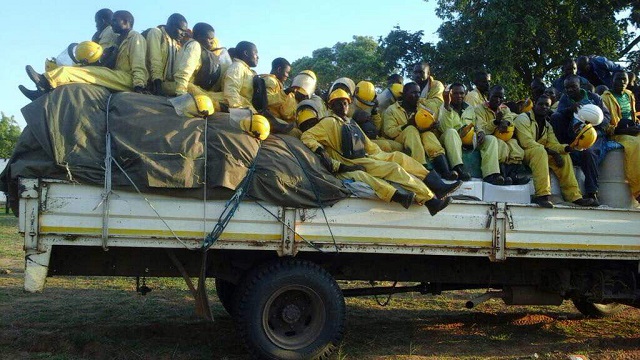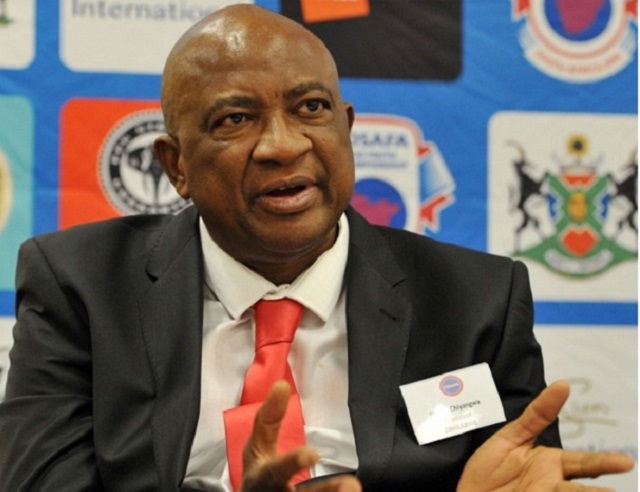Traffic accident trauma survivors need counseling as much as physical treatment


Individuals who are involved in a road accident that caused a fatality are at heightened risk of developing PTSD, even if the individual was not responsible for the accident. The driver of this truck that killed 21 is probably dealing with issues of enhanced perceptions of responsibility, protracted feelings of guilt, and survivor guilt.
Stanford Chiwanga, Online Editor
THOUSANDS of traffic accidents occur in Zimbabwe every year and they claim hundreds lives and wound many. The survivors of these accidents get treated for physical injuries but rarely do they get treated for psychological injuries and as a result they tend to experience feelings of anxiety, tearfulness, short-temper, and have difficulties sleeping. These and similar issues can last for a long time after the accident.
For most people who are in a traffic accident, the overwhelming feelings go away over time. Sometimes those feelings don’t go away or they become stronger. They can change the way you think and act. Strong feelings that stay with you for a long time and get in the way of everyday life indicate psychological trauma, which, unless the person actively works through their difficulties, may develop into post traumatic stress disorder (PTSD): this condition can be quite devastating to people’s lives.

FORTY-THREE people died on the spot while 30 were injured when a Zambia-bound King Lion bus rammed into a tree in the Nyamakate area in Hurungwe last year.
According to the American Psychiatric Association PTSD is an anxiety disorder that often follows a traumatic event involving actual or threatened death, serious injury, or threat to the physical integrity of oneself or others. For many individuals, the symptoms of PTSD following a serious motor vehicle accident may include psychologically re-experiencing the trauma such as intrusive thoughts about the accident, distressing dreams about the accident, persistent avoidance of thoughts or situations associated with the accident, for example, reluctance or refusal to drive, actively avoiding thoughts about the accident, numbing of emotional responsiveness (e.g., greatly reduced or absence of emotions, feeling detached from others), and increased physical arousal (e.g., exaggerated startle, irritability, disturbed sleep).
Also, included among these issues are enhanced perceptions of responsibility, protracted feelings of guilt, and survivor guilt. Although this issue has not received extensive empirical study, psychologists Blanchard and Hickling suggest that individuals who are involved in a road accident that caused a fatality are at heightened risk of developing PTSD, even if the individual was not responsible for the accident
Unfortunately, unless family and friends have experienced psychological trauma themselves, they are unlikely to appreciate just how debilitating it can be – even if the accident victim was physically unharmed. It is easy to assume that the victim will soon feel back to normal again.

A road accident survivor has to deal with psychological trauma which he or she can recover from with family support
However, if they are still experiencing anxiety attacks and feeling tearful, accident survivors may tend to back away from friends and social groups.
The word ‘Trauma’ is used to mean different things in different contexts. For example, physical trauma generally means a serious injury. Also, in conversation we may describe events as ‘traumatic’ when they are just rather unpleasant. However, psychological trauma refers to a series of quite specific danger alert processes that the brain and body go through in times of sudden threat, such as a car accident. These processes can get ‘stuck’ in a state of alert that stays with people – potentially for a very long time. And the ‘red alert’ state can, in trauma sufferers, become triggered easily by anything that may be a reminder of the accident: from the music that was playing at the time of the crash, to the weather conditions at the time or even the clothes you had one that day.
Although people who have survived car crashes may want to avoid thinking about what happened, there is overwhelming research evidence to show that trauma victims benefit from talking about their experience, how they felt, how they feel, and what it has meant for them. Unfortunately, they may be reluctant to talk to friends about the accident for various reasons. Trauma sufferers often fear that talking about what has happened might make them feel weepy or angry – so they avoid the topic with friends and family because they don’t want to burden them with these emotions.
Counselling can make a huge difference to those suffering the emotional aftermath of a road traffic accident. The counselling session provides a safe space to talk about the continuing feelings of panic, short-temperedness, withdrawal or whatever else is happening for the survivor.

Counselling can make a huge difference to those suffering the emotional aftermath of a road traffic accident. The counselling session provides a safe space to talk about the continuing feelings of panic, short-temperedness, withdrawal or whatever else is happening for the survivor.
Although each person’s response to a road accident will of course be slightly different, there are general patterns that people tend to follow. A counsellor can provide information about trauma and how it works on the brain and nervous system. A counsellor can also help survivors to identify coping strategies that work for them, and explore different ideas that could help progress through the trauma recovery process. Without help, some people can stay traumatised, in a state of anxiety, for months or even years. This can lead to more accidents if they happen to get behind the wheel.







Comments